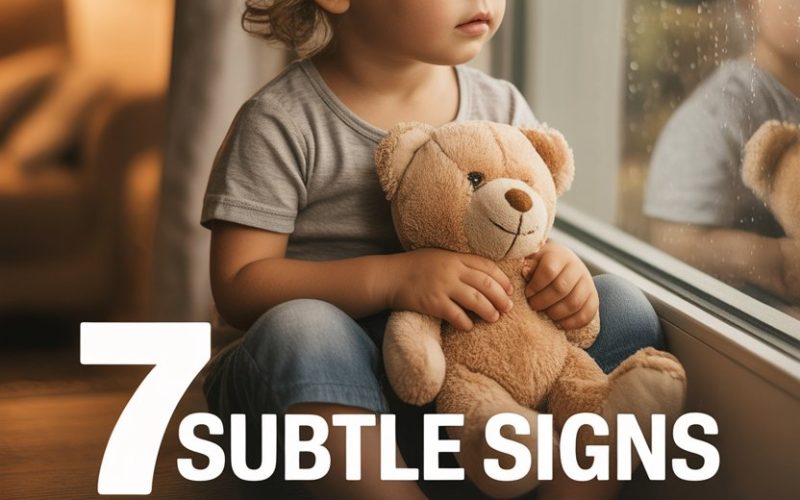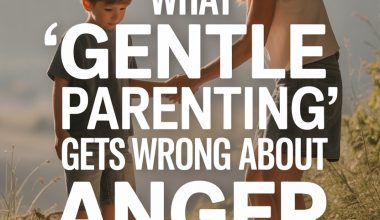Ever noticed your child sighing dramatically while recounting why the universe seems to have it in for them?
Most kids have a flair for the dramatic at times, but when “it’s not fair” becomes their battle cry, you might be seeing more than just everyday childhood frustration.
A victim mindset can quietly worm its way into a child’s thinking, colouring how they approach challenges, friendships, and even their own abilities.
Time-starved parents don’t need one more thing to fret about—but spotting these subtle signs early gives you a chance to help your child rewrite their inner script.
Here’s how to spot the warning signals and what you can do tonight (without any fancy degrees or complicated Pinterest charts).
1. Constant Blame-Shifting
If “It’s not my fault!” rings out more often than the school bell, your child might be doing more than dodging chores.
Kids with a victim mindset often assign blame to siblings, teachers, the family dog, or even a particularly grumpy-looking cloud. Accountability feels threatening, so they hold onto finger-pointing like a security blanket.
Dr. Laura Markham from Aha! Parenting points out that while avoiding blame protects self-esteem in the short run, it also stunts resilience and self-reflection.
A child stuck in this pattern will struggle to see their own part in mishaps or conflicts, missing out on valuable lessons.
Try this tonight: When fingers start pointing, gently steer the conversation toward solutions instead of culprits. “Looks like things didn’t turn out how you wanted. What could we try differently next time?”
You’ll be teaching them to focus on agency instead of injustice—one dinner-table squabble at a time.
2. Exaggerating Problems or Injustices
“I always get the smallest slice!” “Nobody ever listens to me!” If your child’s go-to move is turning tiny slights into epic sagas, you might have a victim narrative gaining traction.
This isn’t just melodrama for effect; it’s a sign they’re viewing life through the lens of unfairness.
Repeated catastrophizing, research from the Child Mind Institute suggests, can amplify anxiety and create a self-fulfilling prophecy where kids expect—and find—mistreatment everywhere.
Try this tonight: Validate their feelings (“I can see you’re upset”), then help them zoom out. Ask questions like, “Has this ever happened before?” or “Is it always this way, or just today?”
Over time, you’ll help them see that bad luck doesn’t have a personal vendetta.
3. Reluctance to Try New Things
If “I can’t” comes out before they’ve even had a crack at the cricket bat, your child might be shielding themselves from disappointment by pre-emptively waving the white flag.
Avoiding new activities or challenges is a classic self-protection mechanism for kids who see themselves as perpetual underdogs.
This reluctance isn’t always about laziness.
Dr. Carol Dweck’s work on the fixed mindset explains: children who believe outcomes are out of their hands (“I always lose anyway”) will dodge any risk that might confirm their perceived powerlessness.
Try this tonight: Praise effort, not results. Swap “You’re so smart” for “I saw you working hard on that puzzle.” When trying something new, focus on fun and curiosity, not winning.
A bit of silliness from your end never hurts (“Let’s see who can make the silliest pancake!”).
4. Quick to Feel Wronged in Friendships
Every friendship has its squabbles. Some kids, though, treat every playground negotiation like a courtroom drama, convinced they’re on trial for crimes they didn’t commit.
If your child often reports feeling left out, ganged up on, or unfairly treated—even when others see a misunderstanding—they may be stuck in a victim loop.
Dr. Michele Borba, an educational psychologist, explains in her book UnSelfie that feeling powerless in peer relationships can set kids up to expect repeated rejection or betrayal.
This mindset can sour even the sweetest friendship.
Try this tonight: Role-play social dilemmas after a spat. Ask, “How do you think your friend felt?” or “Is there another way to look at what happened?”
You’ll be teaching the fine art of empathy (with a side of dramatic reenactment).
5. Difficulty Owning Up to Mistakes
Children with a victim mindset have a sixth sense for sidestepping any admission of guilt. “I didn’t spill the juice!” as they stand in the puddle.
Mistakes become shameful, not learning opportunities, because errors threaten their fragile self-image.
According to child psychologist Dr. John Taylor, learning to own mistakes is key to developing grit and perseverance. Kids who see themselves solely as victims struggle to tolerate the normal discomfort of being wrong or messing up.
Try this tonight: Share one of your own minor blunders (“You know, I sent the wrong email today—oops!”) and how you sorted it. Modelling self-acceptance, especially with a bit of humour, helps take the sting out of slip-ups.
6. Seeking Extra Attention or Comfort After Minor Setbacks
Stubbed toe? Sudden need for a cuddle. Didn’t win at UNO? Time to mope until the family offers sympathy, snacks, and perhaps their undivided attention.
For some kids, every small defeat or discomfort becomes a rallying point for comfort and reassurance.
While it’s tempting to swoop in with a biscuit and a hug (and sometimes you absolutely should), excessive rescuing can reinforce the idea that misfortune is always outside their control and must be soothed away by others.
A study from the University of Queensland found that too much parental coddling can leave children less equipped to cope with stress.
Try this tonight: Offer comfort (“That looks like it hurt!”), but encourage problem-solving too. “What might help you feel better?” or “Shall we put a bandage on, or do you think you’ll survive with a brave face?”
You’re showing love and nurturing independence all at once.
7. Pervasive Negative Self-Talk
When a child regularly labels themselves as unlucky, disliked, or “the worst,” it’s more than just a fleeting bad mood. This kind of persistent negative self-talk is a red flag that they’re seeing the world—and themselves—as adversaries.
Patterns of negative self-labeling often take root early and can snowball, shaping everything from confidence to willingness to try new things.
Research published in the Journal of Abnormal Child Psychology highlights how negative thinking in childhood can predict anxiety and depression later on.
Try this tonight: Counter the inner critic with a little “thought detective” work. When your child says, “I’m the worst at maths,” ask, “Is that true, or did you just have a tough day?”
Help them reframe: “You’re learning, and everyone has tricky days.”
Making Small Shifts Tonight
Catching a victim mindset early doesn’t mean you need to suddenly channel your inner psychologist.
Change starts in the tiny moments—conversations at bedtime, giggles during clean-up, the way you respond when Monopoly ends in tears (it always does).
Every child has days when the world feels unfair.
But with gentle guidance, patience, and a healthy dose of humour, you can help your child see themselves as problem-solvers, not hapless bystanders.
That’s the secret sauce for resilience—and for raising kids who know they have the power to shape their own stories, even when the odds (or the biscuits) aren’t stacked in their favour.




